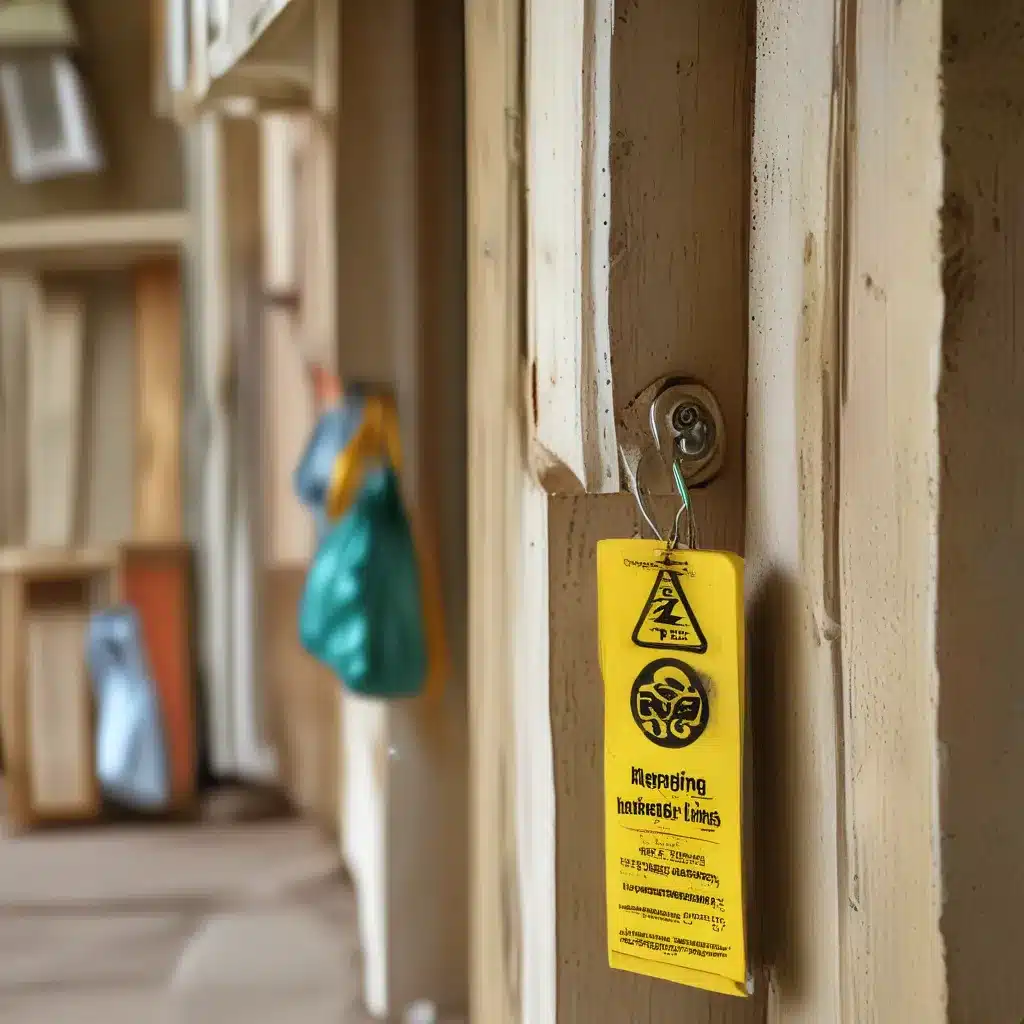Ah, the joys of homeownership – where we get to tackle all sorts of exciting challenges, from leaky faucets to clogged drains. But what about those mysterious bottles and cans lurking in the back of our cabinets and closets? You know the ones I’m talking about – the ones that seem to have been there since the dawn of time, silently judging us with their cryptic labels and questionable contents.
Well, my friends, today we’re going to tackle the often-overlooked issue of household hazardous waste (HHW). I know, I know, it sounds like a real party-pooper of a topic, but trust me, once you get a handle on it, you’ll be feeling like a domestic superhero.
What is Household Hazardous Waste?
Household hazardous waste, or HHW, is a term used to describe leftover or used household products that contain chemicals that can be dangerous if not managed properly. These products can include things like cleaning supplies, paint, pesticides, and even your old bottle of engine oil.
Now, I know what you’re thinking – “But I’m not a professional hazmat team, how am I supposed to handle this stuff?” The good news is, as a regular ol’ homeowner, you’re not required to treat these materials as full-blown hazardous waste. In fact, you can often just toss them in the regular trash.
However, that doesn’t mean you should just go dumping them down the sink or in the backyard. That’s a big no-no and could lead to some serious environmental issues. Instead, many communities offer HHW drop-off facilities or collection events where you can safely dispose of these items.
Finding a Safe Disposal Option
One of the best resources I’ve found for locating HHW disposal options is the Texas Commission on Environmental Quality (TCEQ) website. They maintain a handy list of ongoing programs and collection events across the state.
Now, I know we’re talking about Philadelphia here, but the TCEQ’s guidelines and tips can still be super helpful, no matter where you live. The key is to look for local city or county programs that accept HHW. Many times, these are free or low-cost services, making it easy to get rid of those sketchy chemicals without breaking the bank.
Preparing Your HHW for Disposal
Alright, so you’ve found a place to drop off your HHW – now what? Well, the TCEQ has some great advice on how to properly store and transport your materials to ensure the safety of both you and the workers at the collection site.
First and foremost, it’s important to keep your HHW in its original containers. Don’t go mixing things together or transferring them to different bottles – that’s a recipe for disaster. And make sure the lids are tight and secure before you head out.
When it comes to transportation, the TCEQ recommends placing your HHW items in a sturdy box or bin, and then securing that in your vehicle. You don’t want those bottles and cans sliding around and potentially leaking or breaking. And for goodness’ sake, don’t transport them in the passenger compartment with you – that’s a one-way ticket to a headache (and possibly a trip to the hospital).
Reducing HHW in Your Home
Of course, the best way to deal with HHW is to try and avoid it in the first place. The TCEQ has some great tips for reducing the amount of hazardous materials in your home, starting with a simple concept: REDUCE.
The idea is to take a good, hard look at the products you’re bringing into your home and ask yourself, “Do I really need this?” Maybe that industrial-strength cleaner isn’t necessary for your everyday mopping and dusting. Or perhaps you can find a more eco-friendly alternative to that pesticide you’ve been using in the garden.
Another great strategy is to REUSE what you can. For example, did you know that many HHW collection programs will also accept used motor oil and antifreeze? That’s right – those fluids don’t have to end up in the trash or down the drain. Instead, you can take them to a convenient drop-off site and let the pros handle the recycling.
And let’s not forget about those pesky compact fluorescent light bulbs (CFLs). Sure, they may contain a tiny bit of mercury, but that doesn’t mean you have to treat them like nuclear waste. If one happens to break, the EPA has some great tips on how to clean it up safely. Just follow their guidance, and you’ll be back to your regularly scheduled lighting in no time.
Wrapping it Up
Well, there you have it, folks – your crash course on securing hazardous household items. Remember, just because you’re not a professional hazmat team doesn’t mean you can’t be a master of domestic safety. With a little bit of knowledge and a lot of common sense, you can keep those sketchy chemicals under control and ensure a cleaner, greener home for you and your family.
And who knows, maybe you’ll even impress your friends and neighbors with your newfound HHW expertise. Just don’t go volunteering to clean out their garages – I have a feeling they might not appreciate the unsolicited advice.
Now, if you’ll excuse me, I’m off to check my own cabinets and closets for any hidden hazards. Wish me luck – I have a feeling I’m going to need it.
Happy (and safe) homeowning, everyone!



